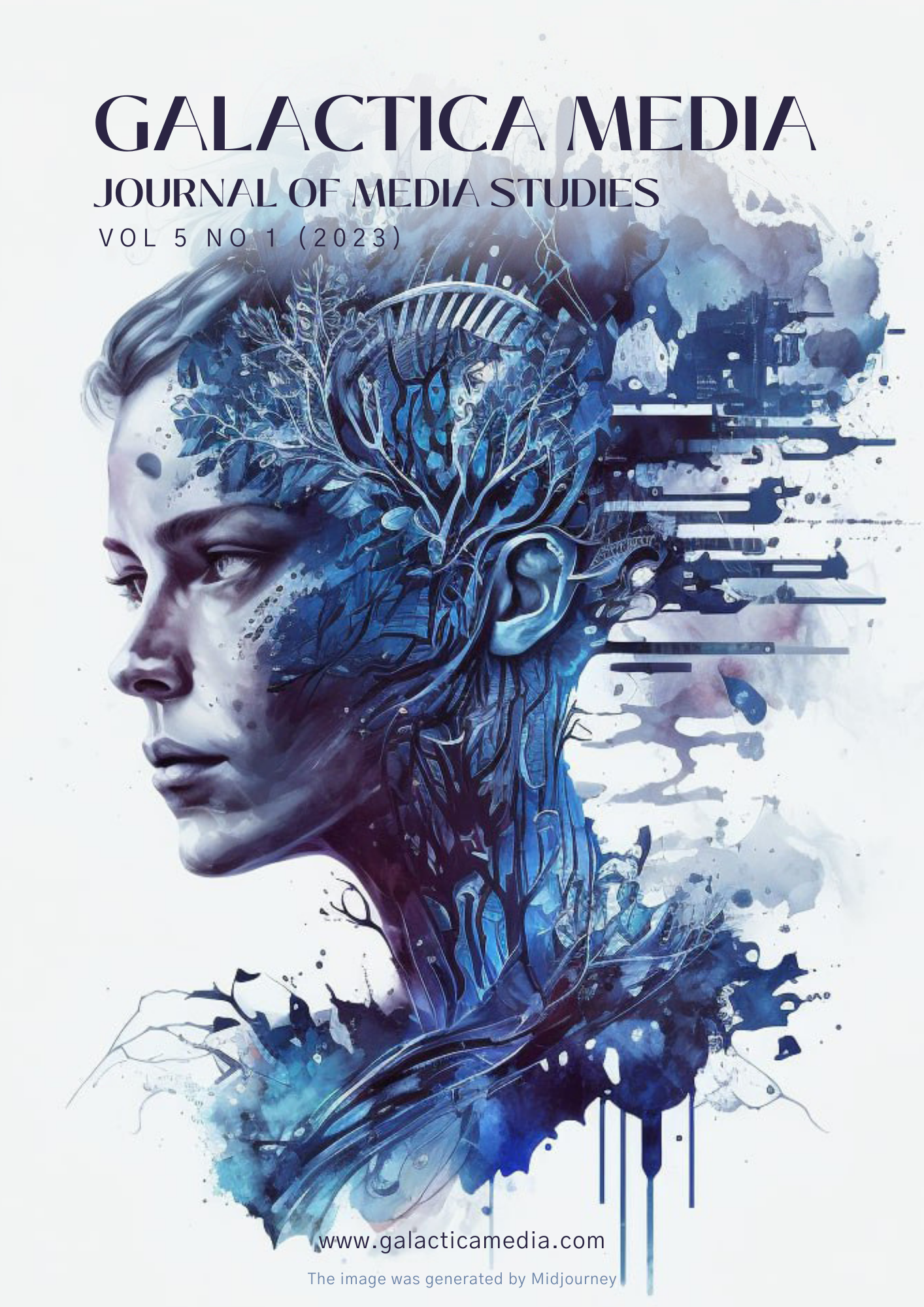Abstract
This study explores the Women journalists’ contributing to the society for economic prosperity and changing the attitude towards the concept of the process of development in Bangladesh. They are protecting and talking outside when facing any discrimination in their journalistic profession. Despite the barriers, women journalists are showing strong interest in journalism as a career. The findings show that women journalists are facing many barriers like family pressure, societal problem, pay‑allowances, gender discrimination, sexual harassment and even lack of workplace. It is possible to survive if you have passion, professionalism, and love to this profession. In recent time Bangladesh is encouraging her women to work outside of home. Currently a significant change has come into the social attitude which is represented by women’s advancement in journalism sector of Bangladesh. This study uses survey questionnaire from 120 female journalists in television, online and print media journalists to find out a fruitful result.
References
Abbas, M. (2009). Bangladesh: Women role in journalism. Modern Ghana. https://www.modernghana.com/news/226244/bangladesh-women-role-in-journalism.html
Babbie, E. R. (1989). Survey research methods (2nd ed.). Wadsworth.
Babul, P. (2010, August 8). Women in media. The Daily Star. https://www.thedailystar.net/news-detail-149785
Bangladesh: Gitiara Nasrin on the challenges facing women as journalists. (2009). Pulitzer Center. https://pulitzercenter.org/stories/bangladesh-gitiara-nasrin-challenges-facing-women-journalists-0
Basher, N. (2016, May 20). Begum: How One Magazine Began a Revolution. The Daily Star. https://www.thedailystar.net/star-weekend/spotlight/begum-how-one-magazine-began-revolution-1226470
Begum, S. (2005). Women in Journalism in Bangladesh. Media Asia, 32(1), 8–10. https://doi.org/10.1080/01296612.2005.11726764
Bernard, H. R. (2002). Research methods in anthropology: Qualitative and quantitative approaches (3rd ed.). AltaMira.
Chen, G. M., Pain, P., Chen, V. Y., Mekelburg, M., Springer, N., & Troger, F. (2020). ‘You really have to have a thick skin’: A cross-cultural perspective on how online harassment influences female journalists. Journalism, 21(7), 877–895. https://doi.org/10.1177/1464884918768500
Chepesiuk, R. (2004). Working as a women journalist in Bangladesh. The Daily Star. http://archive.thedailystar.net/2004/06/14/d406141501214.htm
Chepesiuk, R. (2014). Tough assignment: Working as a woman journalist in Bangladesh. The Daily Star. http://archive.thedailystar.net/2004/06/14/d406141501125.htms
Chowdhury, N. J. (2014). Women’s Participation in Managerial Activities: A Study on Employed Women in Selected Enterprises of Banglades. IIUC Studies, 10–11, 39–64. https://doi.org/10.3329/iiucs.v10i0.27426
Crossman, A. (2018). Understanding Purposive Sampling. ThoughtCo. https://www.thoughtco.com/purposive-sampling-3026727
De-Miguel, R., Hanitzsch, T., Parratt, S., & Berganza, R. (2017). Women journalists in Spain: An analysis of the sociodemographic features of the gender gap. El Profesional de La Información, 26(3), 497–506. https://doi.org/10.3145/epi.2017.may.16
Franzo, S. E. (2012, June 29). The 4 Main Reasons to Conduct Surveys. Snap Surveys Blog. https://www.snapsurveys.com/blog/4-main-reasons-conduct-surveys/
Galhotra, S. (2013, August 9). Q&A: Nadia Sharmeen on journalists in Bangladesh. Committee to Protect Journalists. https://cpj.org/2013/08/bangladesh-24/
Hossain, M. (2015). Age of marriage 18, but 16 with parental consent. Prothomalo. https://en.prothomalo.com/bangladesh/Age-of-marriage-18-but-16-with-parental-consent
Kaye-Essien, C. W., & Ismail, M. (2020). Leadership, gender and the Arab media: A perception study of female journalists in Egypt. Feminist Media Studies, 20(1), 119–134. https://doi.org/10.1080/14680777.2018.1546212
Kim, K.-H. (2006). Obstacles to the success of female journalists in Korea. Media, Culture & Society, 28(1), 123–141. https://doi.org/10.1177/0163443706059578
McNamara, C. (2007). General Guidelines for Conducting Research Interviews. Managment Library. https://management.org/businessresearch/interviews.htm
Natranjan, S. (1981). A history of the press in India. Asia Publishing House.
North, L. (2012). “Blokey” newsrooms still a battleground for female journalists. Australian Journalism Review, 34(2), 57–70. https://doi.org/10.3316/ielapa.084950271981010
North, L. (2016). The Gender of “soft” and “hard” news: Female journalists’ views on gendered story allocations. Journalism Studies, 17(3), 356–373. https://doi.org/10.1080/1461670X.2014.987551
Othondrila, O. (2014). Representation of Women in Electronic Visual Media: Bangladeshi Context [Bachelor thesis, BRAC University]. http://dspace.bracu.ac.bd/xmlui/bitstream/handle/10361/3946/12263008.pdf
Rahman, M. (2017). Bangladesh’s Women Journalists Rise Against the Odds. Inter Press Service. http://www.ipsnews.net/2017/01/bangladeshs-women-journalists-rise-against-the-odds/
Rotundo, M., & Sackett, P. R. (2002). The relative importance of task, citizenship, and counterproductive performance to global ratings of job performance: A policy-capturing approach. Journal of Applied Psychology, 87(1), 66–80. https://doi.org/10.1037/0021-9010.87.1.66
Safa, M. N. (2015). Challenges of Female Journalists in Bangladesh. Humanities and Social Sciences, 3(5), 207–214. https://doi.org/10.11648/j.hss.20150305.17
Sarkar, N. (2018, March 9). Why women are leaving journalism. Dhaka Tribune. https://archive.dhakatribune.com/bangladesh/2018/03/10/women-leaving-journalism
Spector, P. E. (1985). Measurement of human service staff satisfaction: Development of the Job Satisfaction Survey. American Journal of Community Psychology, 13(6), 693–713. https://doi.org/10.1007/BF00929796
Ullah, M. S., & Akhter, R. (2016). Country Report Journalists in Bangladesh Background of Journalists [Country Report]. University of Chittagong. https://epub.ub.uni-muenchen.de/31032/1/Country_Report_Bangladesh.pdf
Ullah, M. S., & Islam, A. (2012). Twisting the Women’s Image and Participation of Female Journalists in Media: A Normative Analysis of the Bangladesh Scenario. Journal of Global Communication, 5(2), 73. https://doi.org/10.5958/j.0974-0600.5.2.001
Unb, D. (2017, July 15). Women in Journalism: Numbers on the rise yet hurdles remain. The Daily Star. https://www.thedailystar.net/city/numbers-the-rise-yet-hurdles-remain-1433239
Wangusi, J. K., Abuya, I. O., & Osogo, J. A. (2018). Sexual Harassment Prevention Initiative and Performance of Female Journalists in the Media Industry in Kenya. International Journal of Scientific Research in Multidisciplinary Studies, 4(8), 5–13.
World Population Review, United Nationas. (2018). https://worldpopulationreview.com/countries/bangladesh-population

This work is licensed under a Creative Commons Attribution 4.0 International License.

